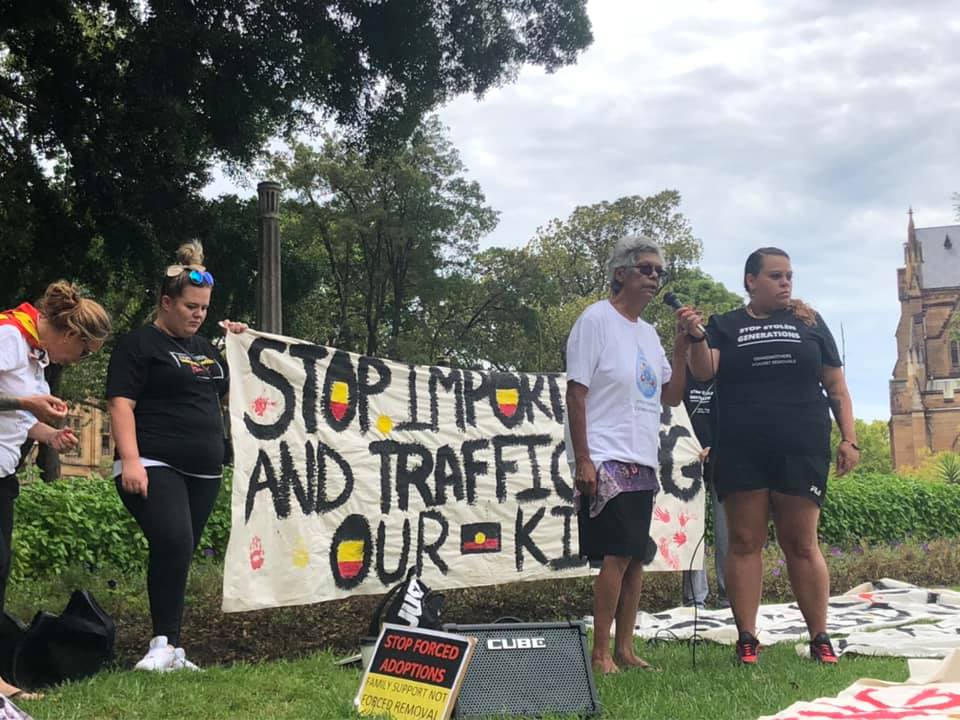Indigenous Aunties and activists gathered at Hyde Park on Friday morning to protest the removal of Indigenous children from their parents by the Department of Communities and Justice (DCJ).
The action and march, organised yearly by Grandmothers against Removal (GMAR) to coincide with Sorry Day, occurred this year on the 12th rather than the 13th so MPs would be in Parliament House during the action. The rally was accompanied by a small police presence.
“We are fighting to get two Wiradjuri children back home from England [and to] create a voice for all other Aboriginal children who are in care and unsafe,” organiser April Shephard expressed. “Our kids belong with family and culture, not in care.”
The rally, chaired by Helen Eason, featured David Shoebridge MLC, who praised the leading Aunties at the rally for their fight against child removals, and announced that he is preparing a set of reforms that would ensure that recommendations from Indigenous elders about the practice will be put into law.
Aunty Hazel, who founded GMAR in 2014, spoke shortly on the injustices of the Australian Government. Aunty Deb spoke to the rally about her 8 children, 7 of which have been placed in care. 3 of those have been physically abused by their paternal grandmother.
After a short speech by Shephard, protestors demanded that Gareth Ward, the Liberal Minister for Families, Communities and Disability Services, come down from Parliament and listen to their demands before marching to the NSW Parliament. Aunty Hazel highlighted the hypocrisy of the State of Commitment – the document outlining how the DCJ plans to collaborate with and respect the values of Indigenous people – and spoke further on the children in England.
“We’re here today to further highlight the inadequacies and the crimes that the department is still committing. Most importantly, we are here to inform Australia that there are currently children living overseas with non-Australian carers.”
The two Wiradjuri children who are currently in England are under the care of two Britons who obtained a carers authorisation whilst on a working visa in Australia. They returned home to Britain with the children despite the objection of the children’s parents and Indigenous community. At the time, COVID-19 travel restrictions forced many families to remain overseas.
The children are not English citizens and the foster parents have been offered a free house and a full weekly wage, alongside childcare payments, if they return to Australia.
The rally closed with several passionate recollections by mothers and grandmothers of their traumatic experiences with the DCJ and the children they had taken from them. “Bring our babies home,” cried one distraught mother. “I was born black and I’ll die black.”
This was the first rally in a new campaign launched by GMAR against child removals for Indigenous families.





